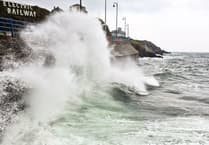The government bought 1,000 ‘body bags’, a week after closing the borders in 2020.
This figure was revealed in a response to a Freedom of Information request.
The Department of Health and Social Care confirmed that 1,000 body bags were bought April 17, 2020.
The items were bought through the Personal Protective Equipment (PPE) procurement team.
The World Health Organisation reported that during the pandemic the island saw more than 40,000 Covid cases, with at least 116 individuals dying from the virus.
According to a freedom of information request from the summer of 2021,which was analysed by the Manx Taxpayers’ Alliance, the government spent £7.9 million on PPE, of which 63% of this equipment remained unused.
According to the freedom of information response from 2021, the PPE includes equipment bought in response to the Covid-19 pandemic, and also ‘PPE purchased for business as usual purposes’.
The analysis by the Manx Taxpayers’ Alliance found that over 9.5 million items of PPE were bought in 2020 with just 3.5 million used, leaving almost six million items unused at the end of the 2020 calendar year.
This means that just 37% of the PPE equipment purchased has been used.
In 2021 Michael Josem from the Manx TaxPayers’ Alliance said: ‘It is excellent that the Isle of Man Government obtained more than enough PPE for the Covid-19 pandemic. The downside risk of having insufficient PPE is big, and it is good that we now have a significant stockpile.’
He added: ‘At the same time, taxpayer money should not be treated as a blank cheque, and with the benefit of hindsight, different decisions might have been made.
‘More than 95% of the purchased gowns were not used, 88% of the purchased visors were not used, and more than 81% of the purchased masks were not used in 2020.
‘This does raise questions about the department’s procurement forecasting, but it is better to be safe than sorry in the context of a global pandemic.’
The Department of Health and Social Care did not get back to us when asked how many body bags are bought normally – when there is no pandemic.



